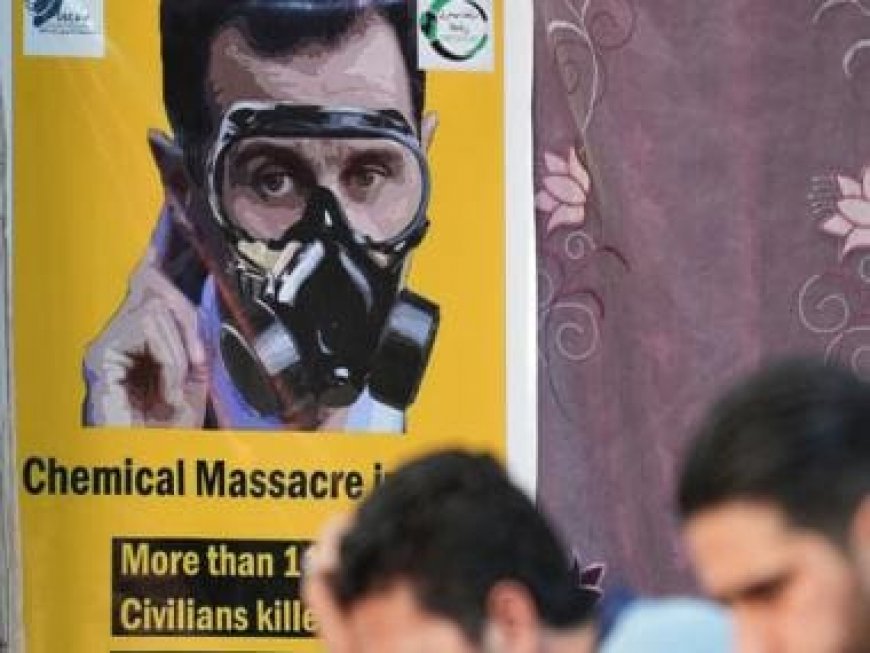'Down with Bashar al-Assad': Protests in Syria enter second week
'Down with Bashar al-Assad': Protests in Syria enter second week

Protests in the government-held parts of southern Syria demanding President Bashar al-Assad have entered the second week.
Protesters converged in the southern city of Suwayda on Monday, effectively shutting down provincial roads and paralyzing the city, reported the Guardian.
Suwayda has remained under government control since the beginning of Syria’s 2011 uprising and is a significant hub for the country’s Druze minority.
Videos shared by Suwayda24, an activist-led organization, depicted hundreds of people assembling in a central square, brandishing Druze flags and chanting slogans such as “long live Syria, and down with Bashar al-Assad.” Another video that circulated online captured activists chanting after sealing shut the doors of a branch of the ruling Ba’ath party in the town of Melh, located in the eastern part of Suwayda province.
The choice of this target was explained by a protester who pointed out the building’s involvement in suppressing earlier protests that demanded improvements in basic services like water and electricity. Addressing President Assad directly, he declared, “From Melh we call on you, Bashar al-Assad … we say leave, we don’t want you, you’re going to fall,” adding a stern ultimatum: “You have two options: either you leave with your dignity, or you are destined to die.”
What began as demonstrations against rising fuel prices and frustrations over economic corruption and mismanagement rapidly evolved into a broader anti-government movement, punctuated by repeated calls for President Assad’s resignation. These demonstrations have been steadily gaining momentum across the southern region of Syria.
Protesters in Suwayda held signs referencing a UN Security Council resolution calling for a transitional government, and others demanding the release of thousands who have been forcibly disappeared by the Syrian security apparatus since the initial outbreak of protests 12 years ago.
Rayan Marouf, the exiled leader of Suwayda24, emphasized the unique nature of these protests, highlighting that they are primarily about political change, distinct from previous economic grievances. Marouf remarked, “If they wanted economic reforms they would have protested differently,” indicating that the protesters are resolutely focused on seeing Assad step down.
These demonstrations, predominantly occurring in areas with a Druze majority, have garnered support from local clerics and other regional groups, including the Bedouin. These movements are further weakening the Assad regime’s standing, which has historically touted its safeguarding of the country’s minority communities.
Against the backdrop of a deteriorating economy, the Syrian pound has plummeted to historic lows, almost reaching 15,000 to the dollar on the black market. The currency’s value has diminished significantly since last year. The government, amidst a costly restructuring effort on subsidies for essential commodities like bread and petrol, has been raising wages in an attempt to mitigate the crisis.
The United Nations’ reports from June revealed that Syria’s prolonged 12-year conflict has pushed 90% of the remaining population below the poverty line. Escalating food costs, coupled with reduced access to electricity and fuel, have exacerbated the dire situation.
President Assad’s attempts to re-establish relationships with former adversaries in the Gulf and seek readmission to the Arab League have been met with limited success. His control over Syrian territories remains fragmented, while the country grapples with an unrelenting economic crisis.
The government’s official response to these protests has been minimal, with Omar Rahmoun, the state’s head of reconciliation, taking to social media to accuse protesters of being conduits for extremist groups.
Damascus has attributed its crumbling economy to Western sanctions, which intensified following the exposure of war crimes committed by the Assad regime and its involvement in the regional drug trade.
Marouf, reflecting on the ongoing protests, underscores that Assad’s attempts to assert control have failed to quell public anger, even within areas under government control. He asserted, “The world thinks that Bashar al-Assad has won after being readmitted to the Arab League, but it’s those on the ground who decide whether he’s a legitimate ruler or not.” As the protests persist and the calls for political change grow louder, the future of President Assad’s regime hangs in the balance.
What's Your Reaction?


























































